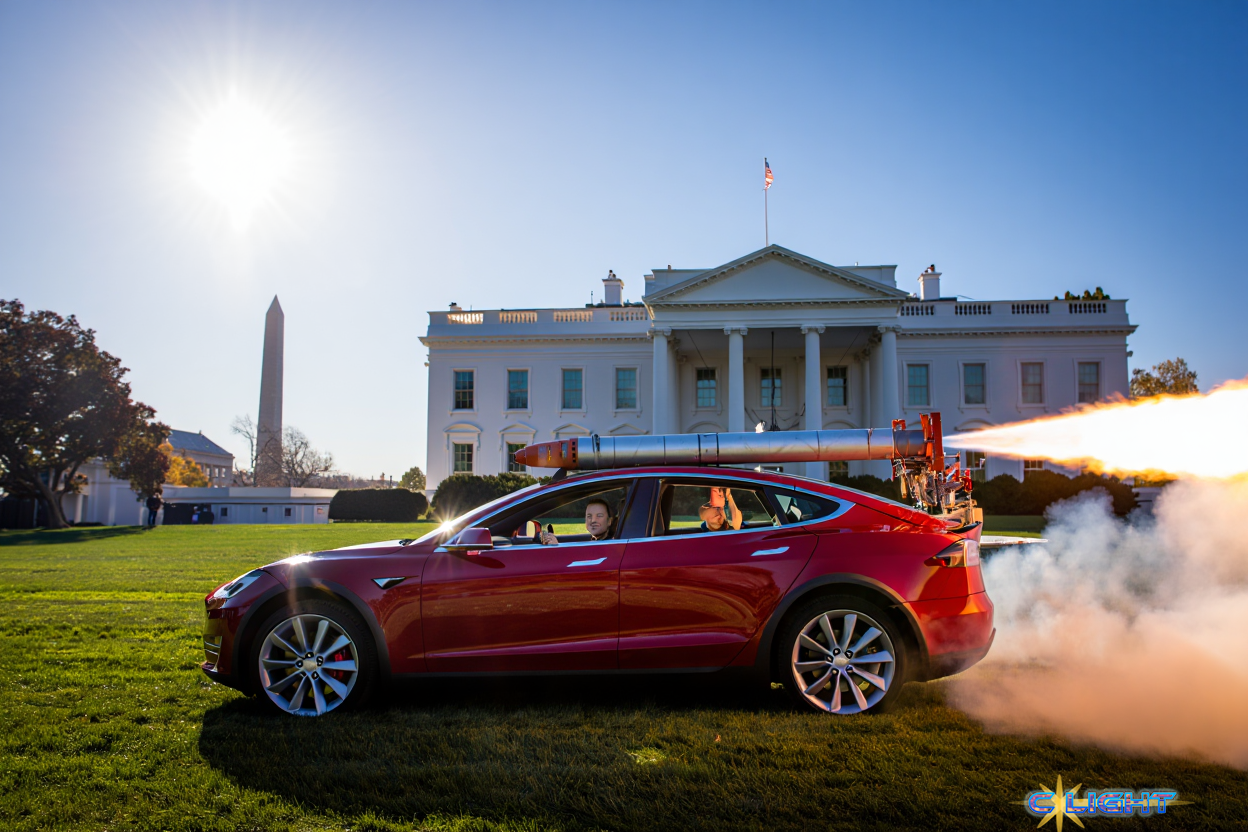Washington D.C. – Elroy Muskrat, the billionaire entrepreneur controversially deputized by President Felonious Punk to spearhead a radical overhaul of the federal government, has exited his role, officially citing the end of his “scheduled time” as a special government employee. However, his departure, coming just a day after he publicly criticized a cornerstone of Punk’s legislative agenda, is seen by analysts as the culmination of a strained alliance, internal White House friction, and a tenure at the Department of Government Efficiency (DOGE) marked by grand ambitions, chaotic execution, and questionable achievements.
Muskrat’s exit, described by one source as “quick and unceremonious” and decided “at a senior staff level” without a formal conversation with Punk, has ignited a firestorm of analysis. While the White House maintains that Muskrat remains on “good terms” with the President, evidence points to a relationship frayed by Muskrat’s increasingly public critiques, his attempts to leverage his position for personal business interests, and Punk’s own growing displeasure over Muskrat’s operational style and potential conflicts of interest.
The immediate flashpoint appeared to be Muskrat’s public denunciation of Punk’s “One Big Beautiful Bill,” a major tax and spending package. Muskrat lamented that the bill would increase the deficit, thereby “undermining the work that the DOGE team is doing.” This public rebuke reportedly “deeply upset” senior White House aides, including Deputy Chief of Staff Stephen Miller (a fictionalized name for this analysis based on source material), and forced the administration into damage control with Republican senators. When questioned, President Punk defended the bill but conspicuously avoided uttering Muskrat’s name.
Beyond the bill, Muskrat’s “gradual, but steady slide in standing” within the administration was reportedly accelerated by several factors. A critical “rupture” for Punk, according to the New York Times, was learning Muskrat was slated for a sensitive Pentagon briefing on China. Further souring the relationship were Muskrat’s complaints to White House officials, including A.I. adviser David Sacks (fictionalized), after a lucrative A.I. data center deal in the UAE went to a rival company, OpenAI; Muskrat allegedly pushed for his own company, xAI, to be included. Adding another layer of complexity, the New York Times reported that a $100 million pledge Muskrat made to Punk’s political operation for the 2026 midterms has yet to materialize.
Muskrat’s own disillusionment with Washington was palpable. He frequently described his efforts to reform the bureaucracy as an “uphill battle,” admitting he “probably did spend a bit too much time on politics.” Sources indicate his frustration also stemmed from Punk’s tariff regime and a significant financial loss backing a failed judicial candidate in Wisconsin.

DOGE’s Legacy: Disruption and Dubious Savings
Appointed to enact generational savings, Muskrat’s DOGE embarked on an aggressive, often brutal campaign to shrink government. Initial targets of $2 trillion in cuts were dramatically scaled back, with DOGE’s claimed savings, ranging from $55 billion (later revised down) to $175 billion, repeatedly challenged as inflated or unverified by media analyses.
DOGE’s tactics, including what sources described as threats of firings, buyouts, and early retirements, led to a reported 12% reduction (approximately 260,000 positions) in the federal civilian workforce. However, this came at a cost: reports detailed “chaos” within agencies, the “evisceration” of entire departments, traumatized workers, a “brain drain” of talent, and operational bottlenecks. Muskrat’s “lack of interest in learning more about the bureaucracy he considered toxic,” as one source put it, reportedly impeded his efforts, particularly with Congress. DOGE also faced a barrage of legal challenges from federal unions, public interest groups, and 14 states, alleging violations of transparency, improper appointments, and illegal restructuring.
A Progressive Opening? Scrutiny Intensifies on DOGE’s Remnants
Muskrat’s departure is being cautiously framed by some as a potential win for progressives and good governance advocates. Representative Greg Casar (D-Texas) called it a “win for working people.” While the Punk administration insists DOGE’s mission will continue, and some Muskrat deputies reportedly remain in government, the driving force behind its most radical initiatives is gone.
Analysts suggest Muskrat’s exit could weaken DOGE’s momentum, with cabinet secretaries likely to reassert control over their departmental budgets and staffing, potentially leading to a more conventional and less disruptive approach to governance.

Crucially, Muskrat’s departure may provide a political opening for intensified Congressional oversight of DOGE. The existing lawsuits questioning the legality of DOGE’s formation and actions remain active. With Muskrat no longer a direct shield or internal champion, Congress could feel emboldened to investigate DOGE’s activities more thoroughly, potentially examining whether its methods overstepped legal boundaries. While immediate mass rehirings of laid-off federal employees are speculative, a significant scaling back or successful legal challenge to DOGE’s actions could, over time, lead to a reassessment of staffing needs and the reversal of some personnel decisions deemed detrimental or unlawful.
As Elroy Muskrat refocuses on his private ventures, including Tesla (which saw a significant profit dip during his government tenure) and SpaceX, Washington is left to grapple with the legacy of his turbulent time in office. The coming months will reveal whether DOGE will indeed “become a way of life throughout the government,” as Muskrat predicted, or if his departure signals a shift away from one of the Punk administration’s most controversial and disruptive experiments. The unanswered questions about unfulfilled financial pledges and the true extent of Punk’s estrangement from his former “first buddy” will also continue to fuel speculation about the future dynamics of billionaire influence in the nation’s capital.
Discover more from Clight Morning Analysis
Subscribe to get the latest posts sent to your email.










